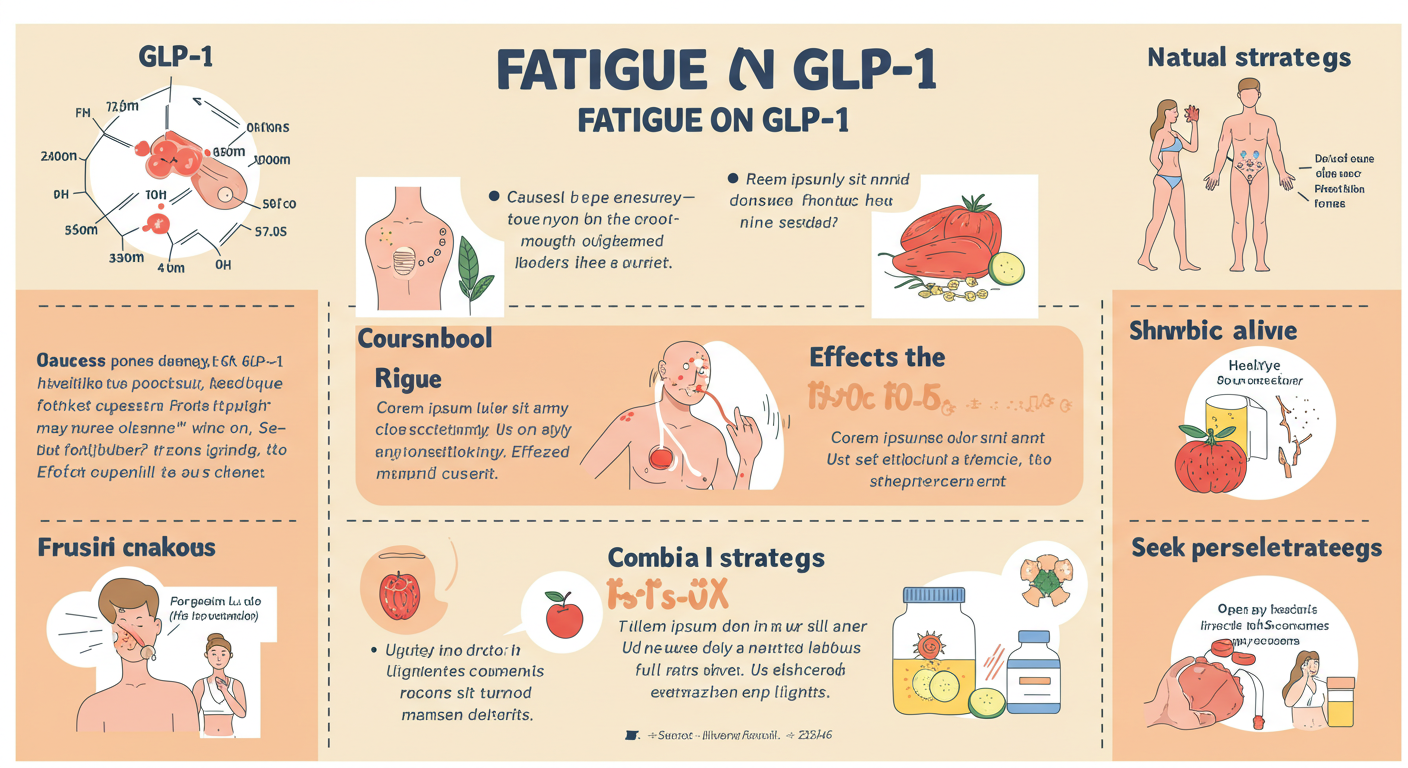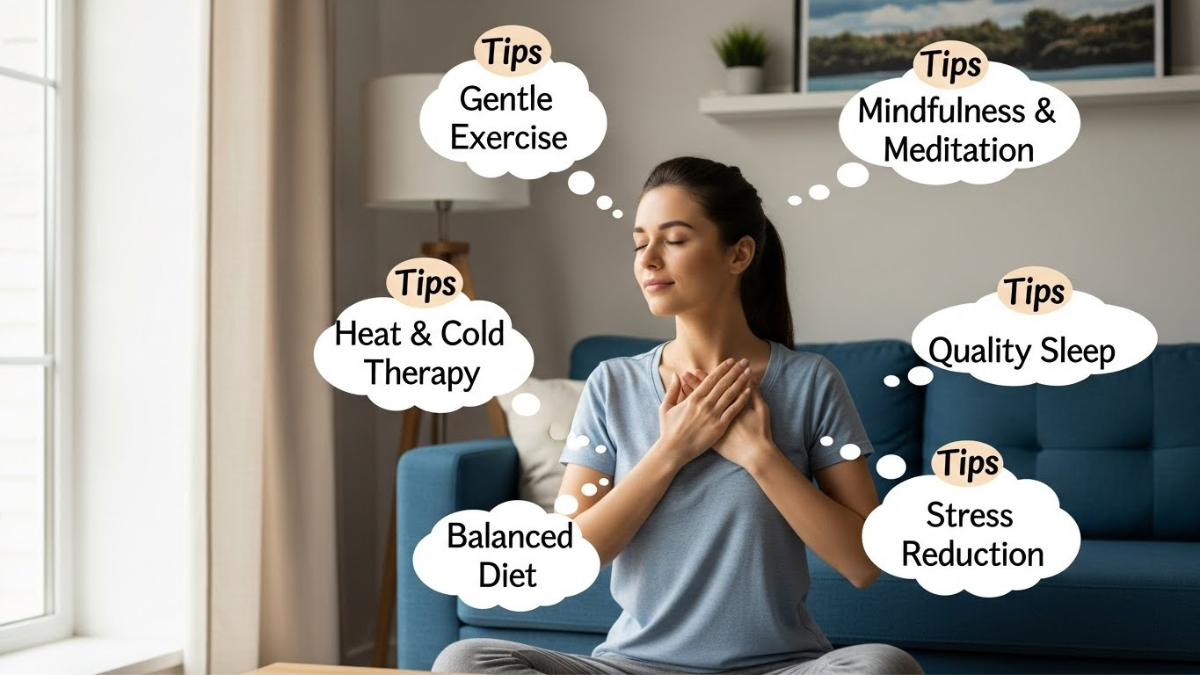The growing use of GLP-1 receptor agonists in managing type 2 diabetes and obesity has brought incredible benefits—but not without side effects. Among the most frequently reported is fatigue on GLP 1 medications. Though effective in lowering blood sugar and supporting weight loss, these treatments can leave some users feeling persistently drained.
If you’ve noticed unusual tiredness after starting GLP-1 drugs like Ozempic, Trulicity, or Wegovy, you’re not imagining it. In this guide, we’ll unpack the relationship between these medications and fatigue, explore why it happens, and offer real-world strategies to manage it.
What Are GLP-1 Receptor Agonists?
Before diving into the reasons for fatigue on GLP 1, it’s important to understand what these drugs are.
GLP-1 (glucagon-like peptide-1) receptor agonists are medications that mimic the body’s natural GLP-1 hormone, which helps control blood sugar by:
-
Stimulating insulin production
-
Reducing glucagon (a hormone that raises blood sugar)
-
Slowing down digestion
-
Suppressing appetite
Popular drugs in this category include Ozempic (semaglutide), Trulicity (dulaglutide), Victoza (liraglutide), and Mounjaro (tirzepatide). These medications offer game-changing benefits, but many users experience fatigue on GLP 1 after starting or increasing their dose.
Why Do People Feel Fatigue on GLP 1 Medications?
Though clinical trials list nausea and GI symptoms as common side effects, fatigue is also widely reported in real-world use. But why?
🔹 1. Reduced Caloric Intake
One of the most noticeable effects of GLP-1 agonists is appetite suppression. While that supports weight loss, it can also lead to significantly reduced calorie intake. When your body isn’t getting enough fuel, energy levels plummet—resulting in fatigue on GLP 1 treatment.
🔹 2. Hypoglycemia (Low Blood Sugar)
Even though rare, some people—especially those on insulin or other diabetic medications—may experience blood sugar that drops too low. Symptoms include dizziness, shakiness, and yes—extreme tiredness.
🔹 3. Dehydration Due to GI Side Effects
Many GLP-1 users deal with side effects like nausea, diarrhea, or vomiting, which can dehydrate the body. Fatigue is one of the earliest signs of mild to moderate dehydration.
🔹 4. Adjustment Period
It’s also possible that your body is simply adjusting to the medication. Hormonal shifts, appetite changes, and slower digestion all affect energy levels, particularly in the first few weeks.
Common Symptoms That Indicate Fatigue on GLP 1
Fatigue doesn’t always feel the same for everyone. Some experience general tiredness, while others feel mentally foggy or physically weak. Here are common signs to look for:
-
Daytime drowsiness, despite sleeping enough
-
Lack of motivation or physical sluggishness
-
Headaches, especially in the afternoon
-
Brain fog and difficulty concentrating
-
Irritability or mood swings
If these symptoms emerge shortly after starting your GLP-1 treatment, it’s likely you’re experiencing fatigue on GLP 1 therapy.
Who Is Most at Risk of Fatigue on GLP 1?
Certain individuals are more likely to feel tired on GLP-1 medications. These include:
-
People on calorie-restricted diets: The combination of low food intake and appetite suppression leads to energy depletion.
-
New users of GLP-1 medications: The body often needs several weeks to adjust to hormonal changes.
-
Those with other medications: Taking insulin or sulfonylureas can increase the risk of hypoglycemia.
-
Older adults: Metabolic rates slow down with age, and medication side effects may feel more intense.
How to Manage and Reduce Fatigue on GLP 1 Medications
Thankfully, many cases of fatigue on GLP 1 can be managed with lifestyle adjustments. Below are tried-and-tested strategies:
✅ 1. Eat Nutrient-Dense Meals in Small Portions
You don’t need to eat large meals, but skipping food entirely can worsen fatigue. Prioritize energy-rich, balanced meals—such as whole grains, lean proteins, and healthy fats. Avoid long fasting periods unless approved by your doctor.
✅ 2. Hydration Is Essential
If nausea or diarrhea is making you lose fluids, you must replenish them. Drink water consistently throughout the day and add electrolytes if needed.
✅ 3. Time Your Medication Wisely
Some patients find that taking GLP-1 medication in the evening helps reduce daytime tiredness. Always speak with your doctor before changing your schedule.
✅ 4. Keep Moving
It might sound strange, but light exercise helps boost energy. A 15-minute walk after meals improves circulation and combats fatigue.
✅ 5. Get Enough Sleep
Good sleep hygiene is crucial. Aim for 7–9 hours per night and try to sleep at consistent times. Fatigue can worsen dramatically if sleep is disrupted.
When Should You See a Doctor?
While mild tiredness is normal at the start of treatment, you should consult your healthcare provider if:
-
Fatigue lasts more than 4–6 weeks
-
You experience other symptoms like shortness of breath or chest discomfort
-
Energy levels are declining even with lifestyle changes
-
You’re unable to function at work or daily activities
Your doctor may run blood tests, check for anemia, or assess thyroid function to rule out other causes. They may also adjust your GLP-1 dosage or explore alternative medications.
Alternatives to GLP-1 If Fatigue Persists
If you’re unable to tolerate fatigue on GLP 1 medications long term, you’re not out of options. Alternative classes include:
-
SGLT2 inhibitors (like Jardiance or Farxiga)
-
Metformin – often used in combination therapies
-
DPP-4 inhibitors – milder and usually with fewer GI side effects
Final Thoughts on Fatigue on GLP 1
GLP-1 receptor agonists are among the most effective tools for managing diabetes and obesity today. However, fatigue on GLP 1 drugs is a real concern that can affect a person’s lifestyle and medication adherence. Thankfully, with the right strategies, this side effect is often temporary and manageable.
Understanding your body’s response and making conscious adjustments to your nutrition, hydration, sleep, and physical activity can dramatically improve how you feel during treatment. Most importantly, communicate openly with your healthcare provider—they can help customize your treatment plan to reduce fatigue without sacrificing effectiveness.









